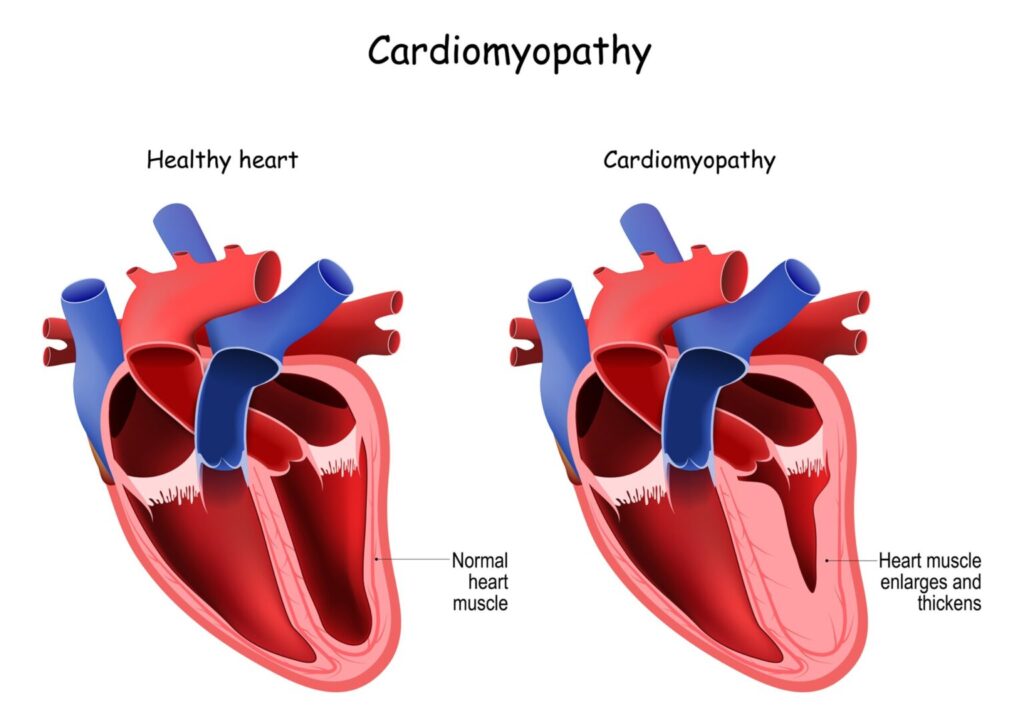Cardiomyopathy

Cardiomyopathy is a group of diseases that affect the heart muscle, making it harder for the heart to pump blood to the rest of the body. It can lead to heart failure, arrhythmias, and other complications. There are several types of cardiomyopathy, each with its own causes and characteristics.
Types of Cardiomyopathy:
Dilated Cardiomyopathy (DCM):
The heart’s ventricles enlarge and weaken, impairing their ability to pump blood efficiently.
Common causes include genetic factors, coronary artery disease, alcohol abuse, and viral infections.
Hypertrophic Cardiomyopathy (HCM):
The heart muscle thickens abnormally, particularly in the ventricles.
Often inherited, it can lead to obstructed blood flow and abnormal heart rhythms.
HCM is a common cause of sudden cardiac death in young athletes.
Restrictive Cardiomyopathy (RCM):
The heart muscle becomes rigid and less elastic, preventing the heart from filling properly with blood.
Can result from conditions like amyloidosis, sarcoidosis, and hemochromatosis.
Arrhythmogenic Right Ventricular Cardiomyopathy (ARVC):
Fat and fibrous tissue replace the muscle of the right ventricle, disrupting its function.
Typically genetic, ARVC can cause dangerous arrhythmias.
Symptoms:
Shortness of breath, especially during exertion or when lying down
Fatigue
Swelling in the legs, ankles, and feet
Palpitations
Dizziness or fainting
Chest pain
Diagnosis:
Medical history and physical examination
Imaging tests such as echocardiograms, MRI, or CT scans
Electrocardiograms (ECG) to detect electrical abnormalities
Blood tests and genetic testing
Treatment:
Medications to manage symptoms and prevent complications, such as beta-blockers, ACE inhibitors, diuretics, and antiarrhythmics
Lifestyle changes, including a heart-healthy diet, regular exercise, and avoiding alcohol
Implantable devices like pacemakers or defibrillators for rhythm management
Surgical options, such as septal myectomy for HCM or heart transplantation in severe cases
Effective management of cardiomyopathy aims to improve heart function, relieve symptoms, and prevent complications, enhancing the overall quality of life for patients.
